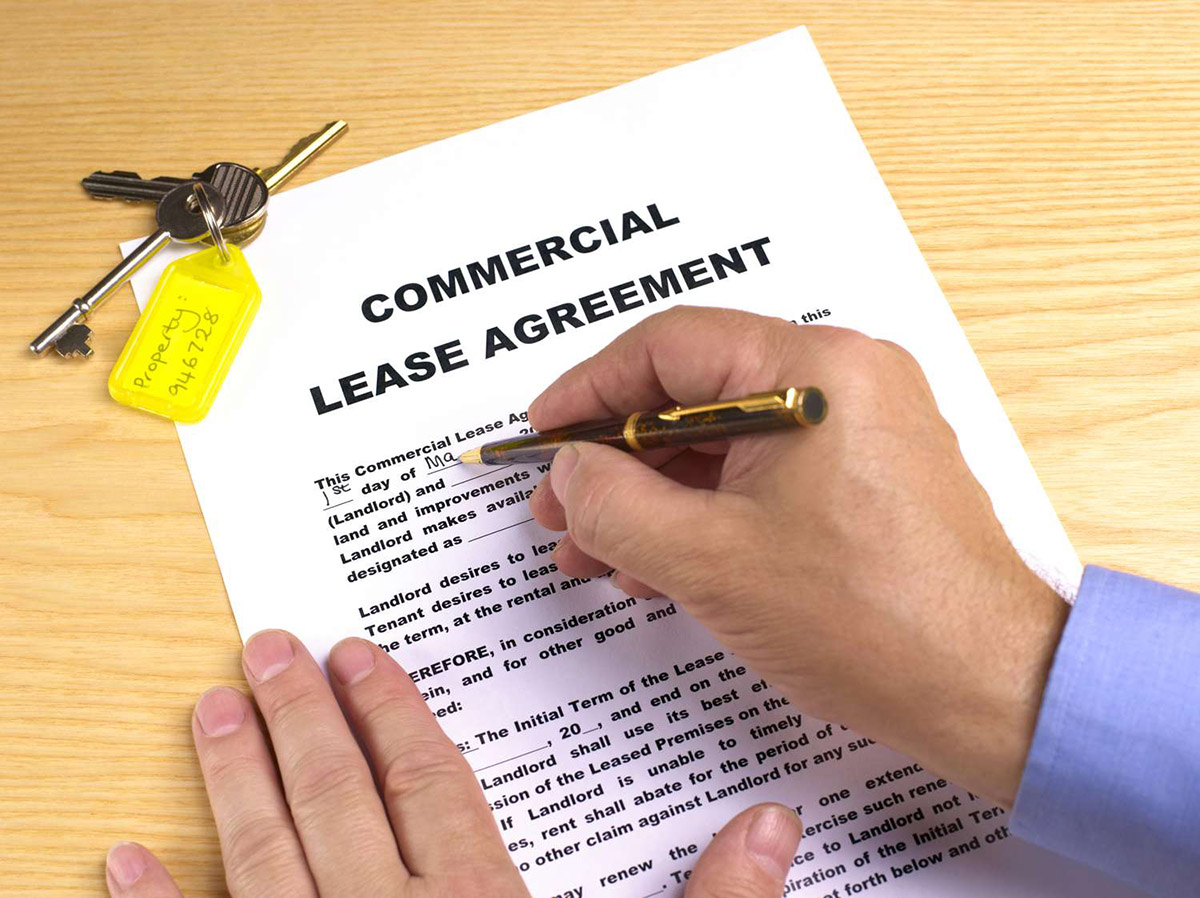Home>Finance>How To Start Business Credit With Bad Personal Credit


Finance
How To Start Business Credit With Bad Personal Credit
Published: January 6, 2024
Learn how to start building business credit even with bad personal credit. Get expert advice and tips on improving your finance and securing funding for your business.
(Many of the links in this article redirect to a specific reviewed product. Your purchase of these products through affiliate links helps to generate commission for LiveWell, at no extra cost. Learn more)
Table of Contents
- Introduction
- Understanding Business Credit
- Importance of Personal Credit in Business Credit
- Challenges of Starting Business Credit with Bad Personal Credit
- Steps to Start Building Business Credit with Bad Personal Credit
- Finding Alternative Financing Options for Business with Bad Personal Credit
- Tips for Improving Personal Credit Score while Building Business Credit
- Conclusion
Introduction
Starting a business can be an exciting venture, but it often requires access to financing to get off the ground. While traditional lenders typically rely on personal credit scores to assess creditworthiness, not everyone has a pristine credit history. However, having bad personal credit doesn’t necessarily mean you can’t establish business credit and obtain the funding you need. In this article, we will explore how to start building business credit, even with a less-than-perfect personal credit score.
Before diving into the specifics, it’s essential to understand what business credit is and why it matters. Business credit is a measure of a company’s ability to repay its debts and obligations. It serves as a financial reputation for your business, much like a personal credit score reflects your creditworthiness as an individual. Building a strong business credit profile can open doors to better financing options, supplier relationships, and business opportunities.
It’s important to note that while personal credit plays a crucial role in business credit, they are separate and distinct entities. However, in the early stages of starting a business, lenders or creditors may consider your personal credit history to evaluate your business’s financial credibility.
Understanding Business Credit
Business credit is a system that assesses the creditworthiness of a company based on its financial history and payment behavior. It provides potential lenders and suppliers with an idea of how likely a business is to repay its debts and fulfill its financial obligations. Similar to personal credit, business credit is measured using a numerical scale.
Business credit scores are typically generated by credit reporting agencies, such as Dun & Bradstreet, Experian, and Equifax. These agencies collect data on businesses’ financial activities, including their payment history, outstanding debts, and public records. The information gathered is used to calculate a business credit score, which can range from 0 to 100, with higher scores indicating lower credit risk.
Building business credit is crucial for several reasons. Firstly, it helps establish your business as a separate legal entity, separating personal and business finances. This separation can protect your personal assets in case of business failures or legal issues. Secondly, a strong business credit profile can help attract potential lenders and suppliers, providing you with access to better financing terms, higher credit limits, and trade credit.
It’s important to note that building business credit takes time and effort. Unlike personal credit, which can be influenced by individual financial practices, business credit relies heavily on the business’s financial activities, such as payment history, debt levels, and credit utilization. Therefore, it’s essential to establish a track record of responsible financial behavior to build a solid business credit profile.
Additionally, it’s important to regularly monitor your business credit report for inaccuracies or fraudulent activities. Just like personal credit reports, errors in your business credit report can have a negative impact on your credit score and hinder your ability to secure financing.
Understanding the fundamentals of business credit is the first step towards building a successful credit profile. In the following sections, we will explore the significance of personal credit in establishing business credit and discuss the challenges that may arise when starting business credit with bad personal credit.
Importance of Personal Credit in Business Credit
When starting a business, especially as a new entrepreneur, your personal credit history often plays a significant role in the initial stages of establishing business credit. Lenders and creditors may look to your personal credit score as a way to assess your financial responsibility and creditworthiness.
Why does personal credit matter for business credit? Well, if you have a strong personal credit score, it demonstrates your ability to manage your finances responsibly. Lenders view this as an indicator of how you may handle your business’s financial obligations. On the other hand, if you have bad personal credit, it may raise concerns about your ability to meet your financial obligations, making it more challenging to secure financing for your business.
The specific ways in which personal credit impacts business credit can vary. For example:
- Lender Consideration: When applying for a business loan, traditional lenders often consider your personal credit score to assess the risk associated with lending to your business. A strong personal credit score increases your chances of qualifying for a loan and obtaining favorable terms.
- Personal Guarantees: In many cases, lenders may require personal guarantees for business loans, especially if your business has limited credit history. This means that you, as the business owner, agree to be personally liable for the loan if your business is unable to repay it. In such cases, your personal credit score becomes even more crucial.
- Supplier Credit: Suppliers may also consider your personal credit history when deciding whether to extend credit terms to your business. If your personal credit is strong, suppliers may be more confident in offering trade credit, allowing you to purchase goods or services with delayed payment options.
It’s important to note that while personal credit is relevant in the early stages of establishing business credit, as your business grows and develops its own credit history, the significance of personal credit may diminish. As your business builds a positive credit profile through timely payments, responsible credit usage, and financial stability, future lenders and creditors may place less emphasis on your personal credit history.
Now that we understand the importance of personal credit in business credit, let’s explore the challenges that can arise when starting business credit with bad personal credit.
Challenges of Starting Business Credit with Bad Personal Credit
Starting a business credit journey with bad personal credit can present some significant challenges. Here are a few hurdles you may encounter:
Limited Financing Options: With bad personal credit, traditional lenders may be hesitant to extend credit or loans to your business. They view your personal credit as an indicator of your ability to manage financial responsibilities, making it difficult to secure favorable financing terms.
Higher Interest Rates: If you do manage to obtain financing with bad personal credit, you may be subject to higher interest rates. Lenders consider a higher interest rate as a way to mitigate perceived risk associated with lending to someone with poor credit history.
Strained Supplier Relationships: Suppliers, too, may be cautious when extending credit terms to a business with bad personal credit of the owner. They may require upfront payments or shorter payment terms, which can strain your cash flow and impact your ability to grow and operate.
Limited Credit Availability and Amounts: It’s common for businesses with bad personal credit to have limited access to credit options and lower credit limits. This can restrict your ability to make large purchases or investments necessary for your business’s growth.
Higher Collateral Requirements: Lenders may require additional collateral or assets to secure financing if your personal credit is not up to par. This puts added strain on your personal finances and assets.
While these challenges may seem daunting, they don’t mean you can’t establish business credit or find alternative financing options. In the next sections, we will explore steps you can take to start building business credit with bad personal credit and find alternative sources of funding for your business.
Steps to Start Building Business Credit with Bad Personal Credit
While starting business credit with bad personal credit may present some challenges, it is still possible to establish and build a strong credit profile for your business. Here are some steps you can take to start building business credit:
- Separate Personal and Business Finances: Establishing your business as a separate legal entity is crucial. Open a dedicated business bank account and obtain an Employer Identification Number (EIN) from the IRS. This separation helps ensure that your personal credit history does not impact your business credit.
- Start with Trade Credit: Begin building business credit by establishing relationships with suppliers or vendors who offer trade credit. These suppliers allow you to purchase goods or services with delayed payment terms. Make timely payments to build a positive payment history.
- Apply for a Secured business Credit Card: If your personal credit is preventing you from getting an unsecured credit card, consider applying for a secured business credit card. A secured credit card requires a cash deposit that serves as collateral. Use the card responsibly and make prompt payments to build a positive credit history for your business.
- Explore Business Credit Builder Programs: Some financial institutions offer programs specifically designed to help business owners build or repair their credit. These programs provide access to small lines of credit or loans that report to business credit bureaus. Make regular payments on these loans to establish a positive credit history.
- Establish Positive Trade References: Reach out to suppliers, creditors, or other business partners who are willing to provide positive references for your business. These references can include details about your business’s payment history and financial responsibility, which can be helpful in building your creditworthiness.
- Monitor and Review Your Business Credit Report: Regularly monitor your business credit report to ensure its accuracy. Address any errors or discrepancies promptly to avoid negative impacts on your credit score.
Remember, building business credit takes time and consistency. It’s essential to demonstrate responsible financial behavior, such as making timely payments, keeping your credit utilization low, and managing your debts effectively. As you establish a positive credit history for your business, you will have a better chance of accessing more favorable financing options and growing your enterprise.
In the next section, we will discuss alternative financing options for businesses with bad personal credit.
Finding Alternative Financing Options for Business with Bad Personal Credit
Securing traditional financing options may be challenging if you have bad personal credit. However, there are alternative financing options available that can help you obtain the funding your business needs. Here are some options to consider:
- Alternative Lenders: Alternative lenders offer loans specifically tailored to businesses with less-than-perfect credit. These lenders often have more lenient eligibility criteria and may base their decision on factors beyond personal credit scores, such as your business’s revenue, cash flow, or potential for growth.
- Microloans: Microloans are small loans offered through nonprofit organizations or microfinance institutions. These loans are typically easier to qualify for and can provide a boost to your working capital or help finance specific business initiatives.
- Crowdfunding: Crowdfunding platforms like Kickstarter or Indiegogo allow you to raise funds from a large pool of individuals who believe in your business or product. This can be an effective way to secure funding while also building a loyal customer base.
- Business Grants: Research and explore grant opportunities offered by government agencies, nonprofits, or private organizations. Grants are non-repayable funds awarded to businesses that meet specific criteria or address certain social or economic needs.
- Peer-to-Peer Lending: Peer-to-peer lending platforms connect borrowers with individual lenders who are willing to lend money. These platforms often have less stringent requirements when compared to traditional lenders, providing an alternative financing option for businesses with bad personal credit.
- Invoice Financing or Factoring: If your business issues invoices to customers, invoice financing or factoring allows you to obtain immediate funds by selling your outstanding invoices to a lender or factor. This can improve your cash flow and provide you with the necessary working capital.
When exploring alternative financing options, it’s crucial to carefully review the terms, interest rates, and repayment requirements. Some options may have higher interest rates or require collateral. Consider speaking with a financial advisor or consulting with a business mentor to ensure you make an informed decision regarding the best financing option for your business.
In addition to exploring alternative financing, it’s important to simultaneously focus on improving your personal credit score. Let’s discuss some tips for improving your personal credit score while building business credit in the next section.
Tips for Improving Personal Credit Score while Building Business Credit
Improving your personal credit score is crucial not only for your personal financial well-being but also for building a solid foundation for your business credit. Here are some tips to help you improve your personal credit score:
- Pay Bills on Time: One of the most important factors in determining your credit score is your payment history. Make sure to pay all your bills, including credit card payments, loans, and utilities, on time to establish a track record of responsible payment behavior.
- Reduce Credit Utilization: Aim to keep your credit card balances low and avoid maxing out your credit limits. High credit utilization can negatively impact your credit score. Try to keep your credit utilization below 30% of your available credit limit.
- Manage Debt Responsibly: Pay down existing debts and avoid taking on unnecessary debt. Creating a plan to pay off outstanding balances can demonstrate responsible financial management and help improve your credit score over time.
- Monitor Your Credit Report: Regularly review your credit report for errors or inaccuracies. Dispute any discrepancies promptly to ensure that your credit report is an accurate reflection of your creditworthiness.
- Avoid Opening Too Many New Accounts: While it can be tempting to open new credit accounts, doing so can impact your credit score negatively, especially if you have recent inquiries or a short credit history. Limit new credit applications to avoid potential damage to your credit score.
- Build a Positive Credit History: Establishing a long and positive credit history can have a positive impact on your credit score. If you have limited credit history, consider becoming an authorized user on someone else’s credit card or obtaining a secured credit card to start building a positive credit profile.
- Seek Professional Advice: If you’re struggling to improve your personal credit score, consider seeking advice from a credit counseling agency. They can provide guidance on managing your debts, developing a budget, and creating a plan to improve your credit.
Improving your personal credit score takes time and patience. While you work on building your business credit, focus on these tips to gradually improve your personal creditworthiness. As your personal credit score improves, it will positively impact your ability to access more favorable financing options for your business.
Finally, let’s wrap up our discussion with a summary of the key points covered in this article.
Conclusion
Building business credit with bad personal credit may seem challenging, but it is certainly possible with the right strategies and determination. Although personal credit history plays a role in the initial stages of establishing business credit, it’s important to remember that business credit and personal credit are separate entities. As your business grows and develops its own credit history, the significance of personal credit diminishes.
Throughout this article, we have discussed the importance of personal credit in business credit, the challenges of starting business credit with bad personal credit, and the steps to start building business credit. We have also explored alternative financing options for businesses with bad personal credit and provided tips for improving personal credit score while building business credit.
Remember, it’s crucial to separate personal and business finances, establish positive payment behavior, explore alternative financing options, and manage your debts responsibly. Building business credit takes time, effort, and perseverance, but the benefits are worth it. A strong business credit profile can help attract better financing terms, open doors to valuable supplier relationships, and position your business for growth and success.
As you embark on your journey to build business credit, stay proactive in monitoring your credit reports, staying organized with financial documentation, and seeking professional advice when needed. With determination and dedication, you can overcome the challenges of bad personal credit and pave the way for a thriving and creditworthy business.














